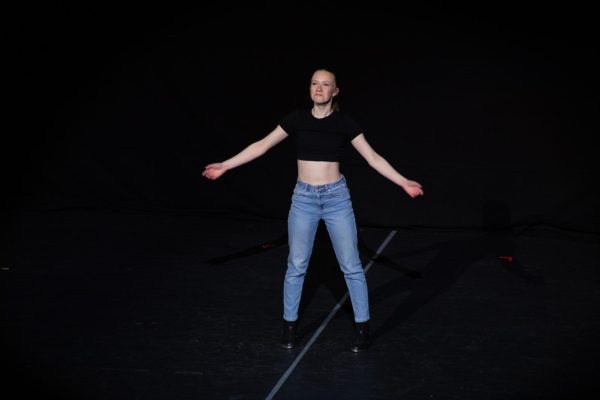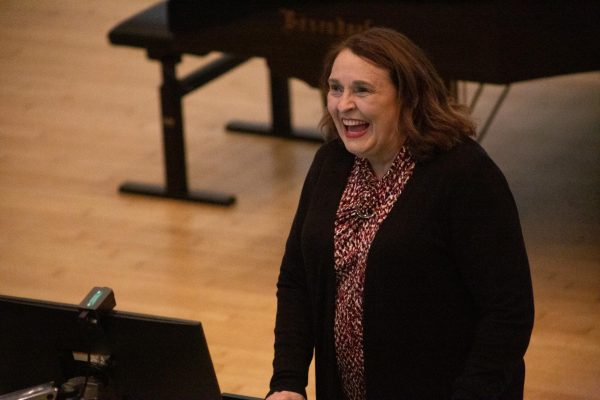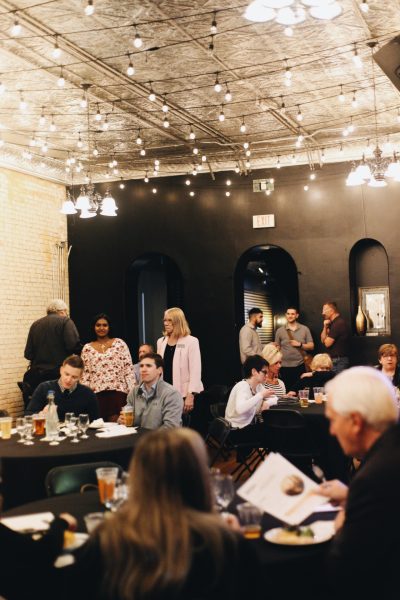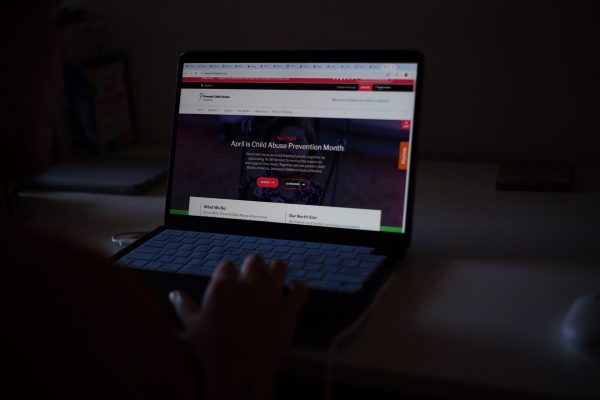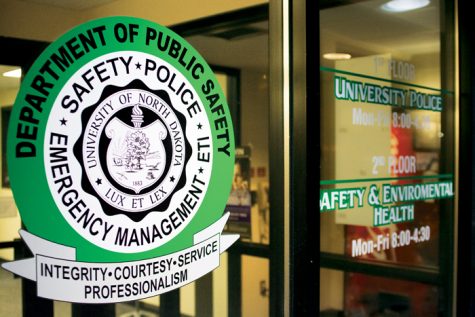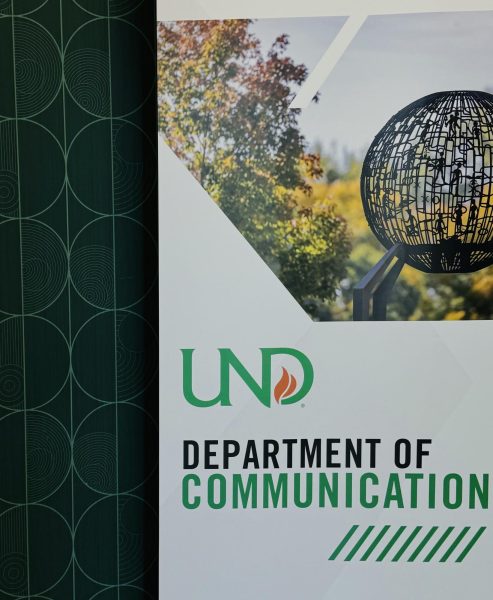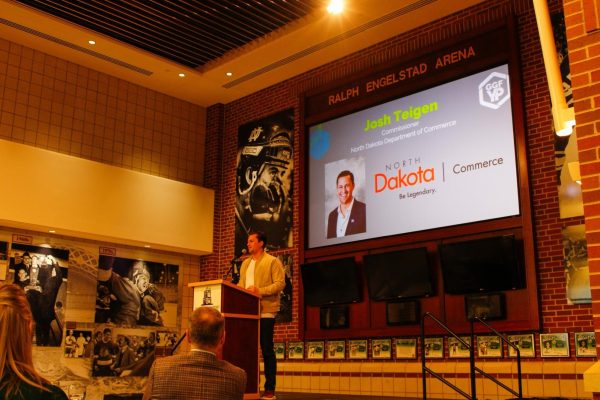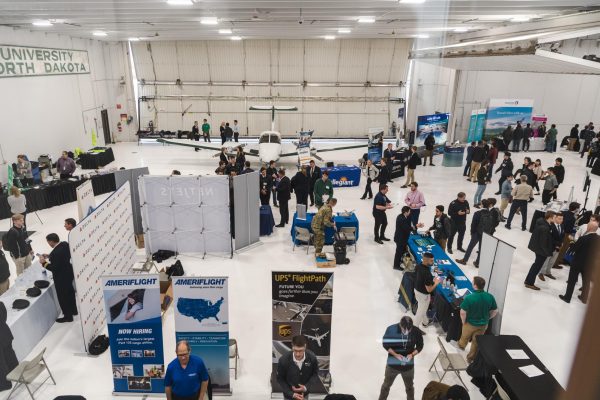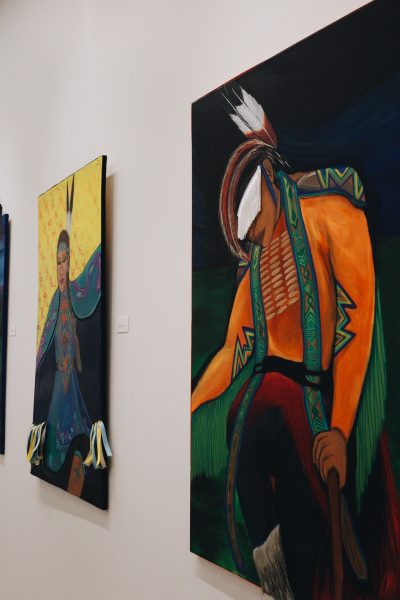Local legislative candidates discuss higher education, budget
*Editor’s note: the Dakota Student will be publishing articles on both teams of legislative candidates in District 42. This is the first of that series. For past coverage of the candidates, visit: https://dakotastudent.com/7818/news/full-slate-in-42/
This November, residents of District 42 — including large portions of the UND community — will have the opportunity to vote for who they want to represent them in the North Dakota state Legislature.
The district is currently represented by Sen. Mac Schneider, Rep. Kylie Oversen and Rep. Corey Mock, all members of the North Dakota Democratic-NPL Party. Schneider, an attorney in Grand Forks, and Oversen, a recent graduate of the UND School of Law, are seeking re-election in District 42, joined on the ticket by Grant Hauschild, who works for the UND Alumni Association & Foundation.
Running against these candidates on the Republican ticket are UND students Emily O’Brien and Jake Blum for the North Dakota House of Representatives, with former Rep. Curt Kreun challenging Schneider for the Senate seat.
This past week, Schneider, Oversen and Hauschild sat down with The Dakota Student for an interview on their past work and future plans.
Education
The candidates highlighted several bipartisan bills over the past legislative sessions that addressed concerns of education affordability. One of these is the DEAL One student loan consolidation program at the Bank of North Dakota.
“It’s one of those solutions that’s a win-win-win for everyone,” said Schneider, who serves as the Senate minority leader for the Dem-NPL and was one of the sponsors of the legislation that created the DEAL One program in 2013. “Over $400 million has been consolidated. This is literally saving tens of millions of dollars of interest payments for North Dakota graduates.”
Another area mentioned by Oversen, who is chairwoman of the state’s Democratic-NPL Party, was maintaining low tuition and student fees. In the last legislative session, Oversen proposed legislation to freeze tuition for the 2015-17 biennium. This bill was not passed, but she said this push for the freeze ultimately influenced the 2.5 percent cap on tuition increases that was signed into law.
“The intention is always to start the conversation about how to keep college affordable,” Oversen said, noting that she and Hauschild also worked during their time with UND student government to cap student fee increases and increase oversight over how they are spent.
Schneider drew a distinction between himself and his opponent in the area of higher education governance in the state. In 2013, Schneider opposed legislation which would have replaced the part-time, eight-member State Board of Higher Education with a full-time three member commission, eliminating the student position on the board.
Schneider argued that students would have lost representation and the commission would have had excessive influence on individual campuses. Then-Representative Kreun supported the legislation, and it was passed by the Legislature. The legislation required approval from North Dakota voters because it amended the state’s constitution, and it was defeated by a large margin.
Voter ID
One issue that has been a source of debate over the past several years in North Dakota is the state’s voter ID laws. In 2013, the Legislature eliminated the option of using an affidavit if a voter did not have a valid form of ID.
Proponents of that legislation stated the change to require a valid ID was designed to prevent voter fraud, while opponents in the Legislature — including Schneider and Oversen — voiced concerns that it could disenfranchise college students, who frequently change addresses, and Native Americans, whose tribal IDs often do not have an address listed.
This summer, a federal court issued a temporary restraining order against the North Dakota law, citing its negative impact on Native American populations. This ruling will allow voters to again use affidavits to indicate they are an eligible voter when they go to the polls this fall. Additionally, the judge noted that voter fraud in North Dakota has been virtually nonexistent. All three candidates voiced support for the ruling, saying it will benefit students.
“To me, voting is a fundamental right, and you should have absolute access to be able to do that,” Hauschild said.
Budget
With statewide budget cuts over the past year and more likely to come when the legislature reconvenes, the candidates stressed the importance of strategically investing the state’s money, as opposed to across the board cuts.
Hauschild cited UND’s research in unmanned aerial systems, the Center for Rural Health and petroleum engineering as not only strengths for the university, but things that benefit the state as a whole. He said investments in higher education will be a way to diversify the economy.
“Let’s invest in a way that will help us avoid the situation in the future,” Schneider added. “That means not eating our seed corn, maintaining investment in higher education, our workforce and the cutting edge research and development that goes on at UND and NDSU.”
In an era of tight budgets, the candidates also stressed the importance of utilizing public-private partnerships and federal matching programs in order to leverage state dollars.
In addition to concerns over higher education budgets, Oversen noted the importance of adequately funding needs within the Department of Health and Human Services, particularly in the face of rising opioid abuse. Grand Forks will lose its judicial referee for its drug court — a program to help rehabilitate drug users as an alternative to prison time — in 2017 due to budget cuts and does not currently have a medical detox center.
The candidates described investments in drug abuse prevention and rehabilitation as cost-saving in the long run compared to imprisonment.
“It’s a pay now or pay later type of thing,” Schneider said. “It’s not a matter if we spend money on this problem, it’s how. So let’s spend it in the way that actually has the best result for the people that are addicted and affected by this epidemic, and let’s do it in a way that’s most cost effective for the state too.”
Discrimination
The candidates also expressed their support for legislation that would ban discrimination in housing, employment and public accommodations based on sexual orientation.
Last legislative session, Oversen and Schneider supported legislation that would have added sexual orientation to state law that protects against discrimination. The bill was passed by the state Senate but failed to pass the House, largely along partisan lines.
Opponents of the legislation argued the law was not necessary due to laws already in place and that there were not clear instances of discrimination based on sexual orientation. Supporters made the argument that it was necessary to add the protection, citing testimony from North Dakotans to the legislature about occurrences of discrimination based on their sexual orientation.
“Across the board, absolutely we know that young people support it by and large,” Oversen said about the anti-discrimination legislation. “Those are the types of communities that we want to be in, communities that support and accept everyone.”
The candidates view the the protection against discrimination as part of creating an environment that would improve quality of life in North Dakota, and they plan to push for it again in the future.
“The protections are very meaningful,” Schneider said. “And I think more than anything it shows that North Dakota is open to new ideas, we want young professionals to stay here and we are open for business.”



